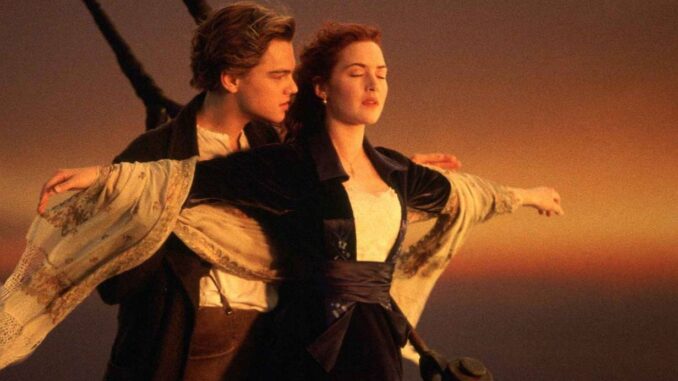
The Icy Grip of Love: Exploring the Enduring Allure of "Titanic" (Streaming Free on…MD02?)
Let's be honest, claiming "Titanic" as James Cameron's "top romance film" is a bit like saying the Grand Canyon is a big hole. It's an undeniable truth, but it barely scratches the surface of its cultural impact. "Titanic" is more than just a romance; it's a sweeping epic, a historical tragedy, and a cinematic spectacle all wrapped in a swirling vortex of ice water and Celine Dion. And the fact that it's now, apparently, "streaming free on MD02" (a streaming platform I'm politely choosing to ignore the questionable origins of) speaks to the film's continued demand and ability to draw in audiences, decades after its initial release.
The magic of "Titanic," and its enduring ability to captivate, lies in its masterful blend of grand-scale disaster and intensely personal drama. We witness the majestic ship, a symbol of human hubris and technological marvel, rendered insignificant against the unforgiving power of nature. Yet, amidst this cataclysm, Cameron weaves a love story that feels intimate and universal. Rose DeWitt Bukater, a young woman suffocating under the gilded cage of her aristocratic life, finds liberation and genuine connection in the arms of Jack Dawson, a penniless artist who embodies the spirit of freedom and adventure.
Their love story, though accelerated by the ticking clock of the sinking ship, resonates with a raw authenticity. Jack's simple yet profound declaration, "You jump, I jump, remember?" encapsulates the depth of their bond. He sees her, truly sees her, beyond the constraints of her social class and prescribed future. He encourages her to embrace life, to live fully, to paint, to breathe. Kate Winslet and Leonardo DiCaprio, both at the peak of their youthful charisma, breathe life into these characters, forging a chemistry that leaps off the screen and tugs relentlessly at our heartstrings.
Furthermore, Cameron expertly uses the visual spectacle of the sinking ship to heighten the emotional impact of the romance. The chaos and panic surrounding them become a crucible, forging their connection and forcing them to confront their mortality. As the icy water rises and the ship groans and buckles around them, their love becomes a beacon of hope and resilience. The heartbreaking scene where Jack sacrifices himself to save Rose, clinging to a piece of driftwood while she promises to survive, is a masterclass in emotional manipulation. It’s the kind of scene that lingers in your memory long after the credits roll, a potent reminder of the enduring power of love in the face of unimaginable tragedy.
Beyond the romance, "Titanic" also offers a compelling commentary on class disparity and societal expectations. We see the stark contrast between the opulence of first class and the cramped quarters of steerage. The film highlights the unfairness of the class system, where life or death can depend on your social standing. The actions of the wealthy passengers during the disaster, particularly those who prioritize their own survival over the well-being of others, serve as a scathing critique of unchecked privilege and self-preservation.
Ultimately, the "magic" of "Titanic" lies in its ability to transport us to another time and place, to immerse us in a world of breathtaking beauty and devastating tragedy. It’s a film that evokes a profound sense of loss and heartbreak, but also celebrates the resilience of the human spirit and the enduring power of love. So, while the idea of watching it "free on MD02" might conjure up images of dodgy streaming quality and potential computer viruses, the core story of "Titanic" remains a timeless and universally appealing tale, deserving of its enduring popularity and continued relevance in our cultural landscape. It's a reminder that even in the face of overwhelming adversity, love can blossom, leaving an indelible mark on our hearts long after the ship has sunk.
